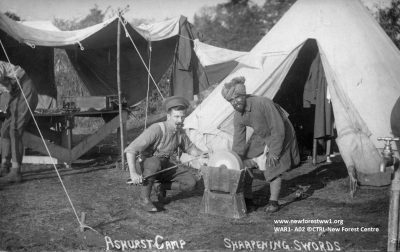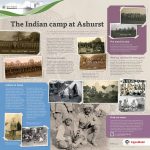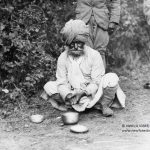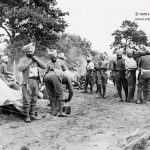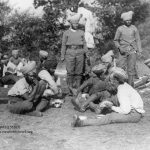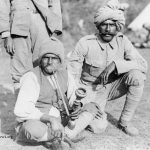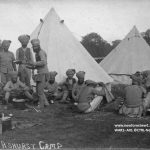Indian Troops at Ashurst
At the outbreak of War in August 1914 the Indian Government provided a number of units to form Indian Expeditionary Force A. They were originally destined to serve in Egypt, however, shortly after their arrival they were ordered to France and embarked on the 29th September 1914. This new deployment became necessary because of the urgent need for troops on the Western Front. Most of the troops disembarked at Marseilles, which they reached on the 8th October 1914. The remainder continued to Liverpool where they disembarked on the 16th October. Two days later they entrained for Southampton and arrived at Ashurst where they pitched camp on the 19th October.
The Indian soldiers who arrived in the Forest in October 1914 where mainly British Army units staffed by British Officers: they comprised the second, fifth and seventh Mountain Batteries Royal Garrison Artillery, and whilst at Ashurst where formed into the third Pack Artillery Brigade. They were escorted by an Indian Army Cavalry Unit, one of a number known as the Bengal Lancers, and accompanied by the usual camp followers, such as cooks and cobblers.
The reason for the diversion to the New Forest was that the guns with which they were equipped were not considered suitable for the Weston Front. As such, early in November, their old ten-pounder guns were sent to Woolwich Arsenal and in exchange they were issued two point –inch Qf mountain guns. While their replacement guns were more powerful they required a team of six, as opposed to four, mules when on the move.
From the 20th October 1914 to the 7th December they trained and familiarised themselves with their new equipment and tactics. On the 8th December they received their embarkation orders and the following marched too Southampton Docks, where they boarded ships for France, arriving at Le Havre on the 10th of December, soon after to be involved at the Front.
This contribution was originally uploaded in 2015 by Sally Arnold, we miss you, RIP.


